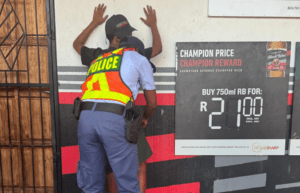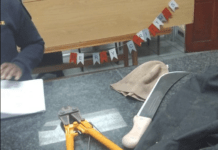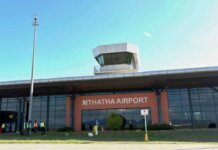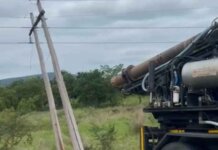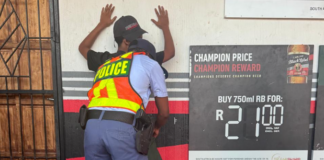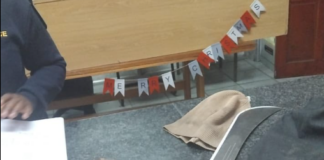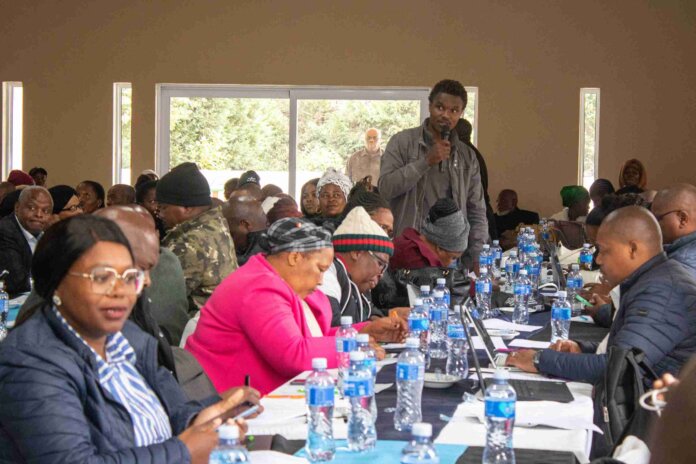
The South African National Roads Agency SOC Limited (SANRAL) has emphasised the critical role of proactive and continuous stakeholder engagement in its road infrastructure build programme.
The Regional Manager for SANRAL’s Southern Region, Mbulelo Peterson, stressed the roads agency’s stance following claims by the Amadiba Crisis Committee that Premier Oscar Mabuyane’s proposed deployment of the army to the Eastern Cape was SANRAL’s “strategic response” to the Amadiba Crisis Committee.
“SANRAL has engaged the Amadiba community from the outset of its consultative processes in 2001 to date and we will continue to do so. We remain open to engaging with any stakeholders affected by the N2 Wild Coast Road project to facilitate transparency in the execution of our mandate,” he said.
“We have always been big advocates for public consultation and regular engagement of our stakeholders and, to this effect, SANRAL’s public consultation on our flagship N2 Wild Coast Road project in the Pondoland was hailed by the courts as having exceeded legal requirements,” said Peterson.
In April 2019, the North Gauteng High Court denied an appeal against an earlier judgment, where Judge Cynthia Pretorius found in SANRAL’s favour and confirmed the validity of the public participation processes during the environmental impact assessment for the N2 Wild Coast Road project.
“Our organisational approach is underpinned by stakeholders as a key strategic pillar to enable our infrastructure service delivery. We have an open-door policy to facilitate continuous stakeholder engagement to ensure we are aligned to our stakeholders’ needs,” Peterson stressed.
“In addition, all SANRAL projects have Project Liaison Committees in place to facilitate communication between the affected communities, SANRAL and the contractor. Our communication platforms remain open to all our stakeholders and communities impacted by our road infrastructure build programme,” he said.
Peterson added: “SANRAL is mandated with the management, maintenance and development of South Africa’s national road network. Our work is a major driver of economic activity and development in the province. Communities living alongside where we construct roads are front and centre beneficiaries of the job opportunities we create, particularly designated groups such as women, military veterans, people with disabilities and previously marginalised individuals in general.
“The subcontracting opportunities we create for targeted enterprises – including emerging contractors, service providers and suppliers – is a large contributor to small enterprise development and advancing government’s transformation agenda,” he said.
Peterson continued: “SANRAL is cognisant of the major socio-economic impact of its N2 Wild Coast Road project, worth in excess of R20 billion, in the province and the Wild Coast. We have been intentional about consistent involvement of the affected communities throughout the project’s life cycle so that there is a sense of ownership by the community.”
According to a survey conducted by the Human Sciences Research Council in 2015, more than 98% of residents interviewed supported the building of a new road between Lusikisiki and Port Edward. This included the majority of people in the Mdatya and Sigidi communities.
Peterson said the N2 Wild Coast Road project had received overwhelming support from the communities living in the Winnie Madikizela-Mandela, Ingquza Hill and Port St Johns municipalities who realise its impact on local economic development and opportunities for eco-tourism, conservation and the hospitality sector.
“SANRAL will continue to engage all affected stakeholders on the N2 Wild Coast Road project. We invite all stakeholders, including the Amadiba Crisis Committee, to a stakeholder engagement session where we will give an update on the various work packages that we are undertaking on the project,” said Peterson.

